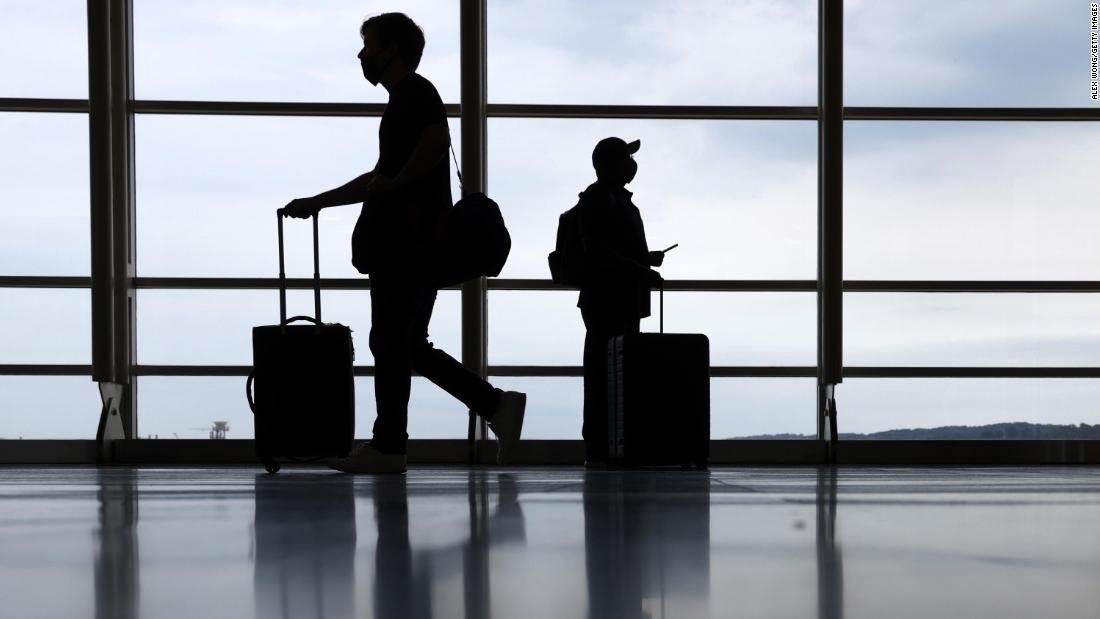Here’s everything we know so far about what the new policies will mean for travelers:
Who can travel?
The policies allow fully vaccinated foreign nationals to enter the United States, replacing a patchwork of bans and restrictions that have been in place since the start of the pandemic.
That means foreign nationals arriving from countries that have been subject to bans — China, Iran, Europe’s Schengen area, the United Kingdom, the Republic of Ireland, Brazil, South Africa and India — will soon be allowed under the policy that applies to all international travelers.
The vaccination requirement goes into effect November 8.
Which vaccines are accepted?
The US Centers for Disease Control and Prevention has confirmed that all FDA approved and authorized vaccines, as well as vaccines that have an Emergency Use Listing (EUL) from the WHO will be accepted for entry into the United States.
That means the AstraZeneca vaccine, in use in places including Canada and Europe, will be accepted. The Sputnik V vaccine developed in Russia has not been approved by WHO or FDA.
What about unvaccinated Americans?
Unvaccinated Americans can still enter the United States but will face more stringent testing requirements for air travel.
They will be “subject to stricter testing requirements,” including a test within one day of their flight’s departure for the United States and an additional test when they return, Jeff Zients, the White House Covid-19 response coordinator, said when he announced the new international air travel rules on September 20.
The announcement about Mexico and Canada land borders on October 12 did not specifically address unvaccinated Americans, but the vaccination requirement is directed at “inbound foreign national travelers.”
What about unvaccinated children?
While little has been said in the announcements of the new international travel system about children, the Department of Homeland Security told CNN that the vaccination requirement will not apply to children who are not eligible.
Jen Psaki, White House press secretary, indicated on September 20 that the more stringent air travel rules outlined for unvaccinated Americans “at this point, would obviously apply to children as well.”
What about mixed-dose vaccinations?
The CDC on Friday updated its definition of “fully vaccinated,” confirming that mixed-dose vaccinations will be accepted.
Is testing required?
Fully vaccinated air travelers are still required to test negative for Covid-19 within three days of their flight’s departure for the United States, in line with the current testing rule.
As mentioned above, unvaccinated American citizens will be required to take a Covid-19 test within one of day of their departing flight and again after arrival.
There is no testing requirement at land borders.
What kind of documentation is required?
Details about what will be acceptable proof of vaccination are forthcoming, a White House official said Friday.
At land borders, vaccinated individuals crossing for nonessential reasons should “be prepared to attest to vaccination status and to present proof of vaccination to a CBP (Customs and Border Protection) officer upon request,” the official said.
Another senior administration official said Tuesday that agencies are working closely with the CDC on both land and air requirements and should have a decision in “coming days as to what the proper documentation looks like.”
Airlines already have systems in place to collect the testing information required of air travelers because all air travelers entering the US are already required to present a negative test result.
The White House official said that more operational details related to international travel will come “well in advance of November 8 to enable preparation for a smooth transition to the new system.”
Who can no longer get into the United States?
The new international travel system largely bars unvaccinated foreign nationals from entering the US.
Unvaccinated travelers coming from countries not affected by travel bans who currently are allowed to fly into the US (from Mexico and Canada, for example) will no longer be allowed entry as of November 8.
A White House official told CNN further guidance on “very limited exceptions” to the requirements will be provided in advance of the international travel policy’s start.
At land borders, the vaccination requirement going into effect on November 8 applies to nonessential travel such as tourism and visits with friends and family.
Individuals traveling for essential reasons, including truck drivers and students, will still be allowed across borders until early January, whether they’re vaccinated or not.
In early January, a vaccination requirement will go into effect for all foreign nationals crossing the borders by land or ferry.
